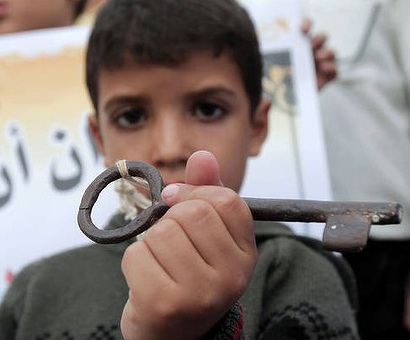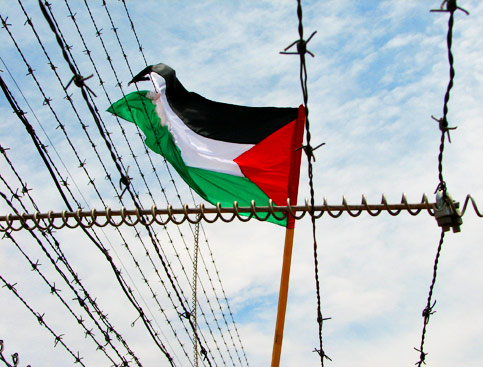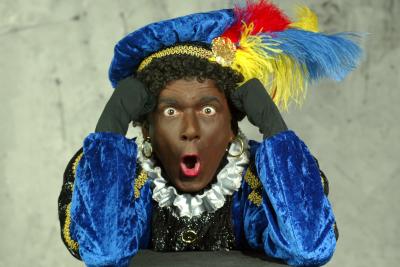Tweeting for Khader: major kudos and a point of criticism
 The past week has been an amazing week for Twitter activism for the Palestinian cause. In fact, the achievements could be described as historic. For 6 days in a row, hashtags related to Khader Adnan’s hunger strike managed to make it to the world trending list 7 times in total.
The past week has been an amazing week for Twitter activism for the Palestinian cause. In fact, the achievements could be described as historic. For 6 days in a row, hashtags related to Khader Adnan’s hunger strike managed to make it to the world trending list 7 times in total.
The success of these online demonstrations must be attributed mostly to those (mostly Palestinian) ‘tweeps’ who organized it, and secondly to those who responded to the calls in a stunning display of harmony and cooperation. Participants were given the hashtag while being urged not to use it before the appointed time of the trending avalanche, and I cannot recall this rule to ever have been broken by any ‘tweep’, at least not on my timeline. This is an amazing feat of mutual understanding, faith in the organizers, and a united stance for the common cause.
The ‘2012 Twitter Intifada’
All of us who participated felt tremendously empowered to experience this amazing feeling of unity and cooperation. It also made us realize that we, as Palestinians, without the help of any factional or sectarian organization, are capable of not only creating harmonious organized action, but are able to transcend above all these sectarian divides, in our united stance behind the hero of our struggle, Khader Adnan.
This brave citizen from occupied Palestine was defying the Israeli oppressor in such an inspiring way, putting his health and life on the line, and apparently having such a charismatic effect upon the masses that practically the entirety of pro-Palestinian Twitter mobilized itself for his cause, and that of all Palestinian prisoners in Israeli administrative detention.
Those 6 days definitely put us in an unprecedented ‘high’, an all-encompassing feeling of Palestinian cooperation, supported by masses of ‘tweeps’ from the international scene. who definitely helped it in achieving world trending status. This definitely was a Twitter Intifada, in all respects.
The anti-climax
As powerful as it was, it apparently was, however, also to good to be true if judged by its long term effect. The sense of empowerment was followed by a painful anti-climax on the 67th day after the beginning of Khader Adnan’s courageous hunger strike. I will now recount the how and why of this anti-climax, in the sincere hope that all who read this will feel that there is something to be learned for the next time – and most certainly not in order to slam those amazing people who were behind organizing the whole deal.
On day 66, I was not expecting anything from the Israeli High Court hearing. I had therefore prepared to translate the speech of the father of Khader Adnan – who spoke to the media on a demonstration outside of Ziv prison in Safad – and provide subtitles for it. I was so immersed in this activity, that I was unable to follow the news for a while. I was doing my best to finish it in time, so I could join the trending action for the hashtag #66DaysForPalestine . And guess what, the subtitled video finished uploading exactly when I logged in on Twitter, in time to join that day’s trending wave.
To my astonishment, I saw a tweet that said Khader had ended his hunger strike, and had made a ‘deal’: in exchange, he would be released on April 17th. I was overwhelmed with a feeling of disappointment, no matter how happy I was that this meant there was hope that Khader would come out of this alive. The first thought on my mind was: but this means he will be in jail two more months, without any reason whatsoever!
I had not received any notification about a hashtag change, but a few minutes later the clock struck the appointed time, and the hashtag #KhadersVictory4Palestine appeared. I was astonished, since this celebratory feeling did not represent my feelings, but I then thought I understood the objective of the organizers. Sometimes, in politics and in activism, one must claim a moral victory in order to empower the activists, and to taunt the oppressors. In this realization and belief, I joined in tweeting with this hashtag, and was happy to see it world trending within a few minutes. Actually, I could not recall the words ‘Victory’ and ‘Palestine’ being on a world trend list ever before, so it made it extra acceptable that we were tweeting this, despite the fact that I did not feel victorious.
The voice of conscience
I then started receiving criticism from a non-Palestinian ‘tweep’ who in fact was expressing my very own thoughts on the issue. She insisted that I call upon my Twitter followers that this is not a victory, but a Zionist ploy to defuse all activist waves for Khader Adnan’s freedom, without giving him or the activists anything in return. Of course, she was 100% right, but I was not willing to concede that at that time, since we were busy standing shoulder to shoulder for the sixth consecutive day of making Palestine and Khader trend worldwide. I acknowledged that she was right, but also argued with her. She was very understanding, but also very steadfast in defending her opinion (which actually was the same as my own). I said the victory was not in the deal, but in the 66 days of hunger strike and our mobilization, and therefore still a victory.
I said to her: wait and see, you are underestimating us. Tomorrow you will see us trending for Khader as if nothing has changed (because nothing has). The Zionist ploy will not work on us. Tomorrow we will be tweeting for Khader Adnan’s freedom, and for criticism of the treacherous fake Israeli ‘deal’.
And then came my true astonishment and disappointment, next day: not a word passed by on Twitter for Khader Adnan. Indeed, the Zionist ploy had worked. Of course I am not saying that our people lost their solidarity for him, but what they definitely did lose was their interest in putting energy in his cause. The organizers apparently had decided that this mechanism of united tweeting should now be used to tweet for an other Arab cause, namely that of Syria.
The strategic mistake
In a few words, I will try to explain why I see this decision as a strategic mistake. It is not because the horrendous events in Syria do not deserve the same type of Twitter action, that I say this. But there are three reasons why strategically, this was not the right choice.
1. By having a Khader Adnan silence on the day after the ‘deal’, we are sending the message to the world and perhaps more importantly, to the activists, that the deal is acceptable, and that Khader Adnan’s issue is resolved. In truth, all he got was a one month discount on his administrative detention which otherwise would likely have lasted 6 months (although it is often renewed with another 6 months by the Israeli courts). We are thereby effectively abandoning the cause of Palestinian prisoners in Israeli administrative detention, and removing the pressure mechanism which was starting to draw attention to their ongoing hunger strikes. This was the exact objective of the Zionist High Court, and it achieved exactly what it sought.
On a side note, if you want to prove me wrong, show me that you can still world trend #FreeKhaderAdnan or anything similar in the coming days.
Politics and activism is often about momentum, and the crucial day for this was the immediate day after the announcement. That chance was lost.
2. World mass media were giving major headline attention to the massacres in Syria on that very day. This situation was entirely opposite to the attention given to Khader Adnan and other Palestinian prisoners in administrative detention. In other words, the impact of a world trending tweet for the Syrian opposition could never have been measured by an increase in media attention, as opposed to the tweets for Khader Adnan, which helped force the media to give attention to something that was being completely ignored. If however, one would insist to world trend the Syrian issue as a display of solidarity, this could have well been done the day after that ‘day of momentum’.
3. What we would have had to achieve on the ‘day of momentum’, is at least one media headline saying: ‘activists do not accept Khader Adnan deal and demand his immediate release’. It is still not entirely too late to achieve this, but it will require an incredible effort now, compared to achieving that on that fateful day.
The way forward
We must continue to call for Khader Adnan’s release. It is not easy to build this up now, but we must try. We cannot thrust aside 66 days of pure resistance and sacrifice, his health having suffered so badly that we are yet to see whether he will ever completely recover from the damage that his body has suffered in these two months. We branded Khader Adnan a hero, because he is. He inspired us, he revived us, he united us. It is not the correct response from us if we move on and forget him. We must reward his heroism, not only for his sake, but because we must keep all Palestinians who are ready to sacrifice for our cause in the optimal spirit of motivation. We must send the message that those of us who step fearlessly in the line of death for the sake of our cause, even those who survive it, will forever be carried on our shoulders as lighting examples for all other activists.
My end note is this: Khader Adnan is not free. He is not healthy. He was not given any justice whatsoever. His hunger strike may be over, but his cause is alive, and Khader is alive, and we must continue to champion his cause and that of all other Palestinian prisoners in Israeli administrative detention. I trust that you will all understand and support my criticism. I also trust that the heroes who carried this inspiring Twitter Intifada to the highest skies of cyber space, will again show their stunning talents of mobilization and organization, and show us all that they too, do not believe justice was done, and that they too, have not forgotten our hero Khader Adnan.
Doc Jazz
P.S. I publish this note with a heavy heart. I am well aware that people generally do not welcome criticism, and I understand these human emotions very well. I want those who read this, and feel that the criticism is directed at them, to know that I love and greatly admire them, and am only writing this because I believe I must.





Recent Comments